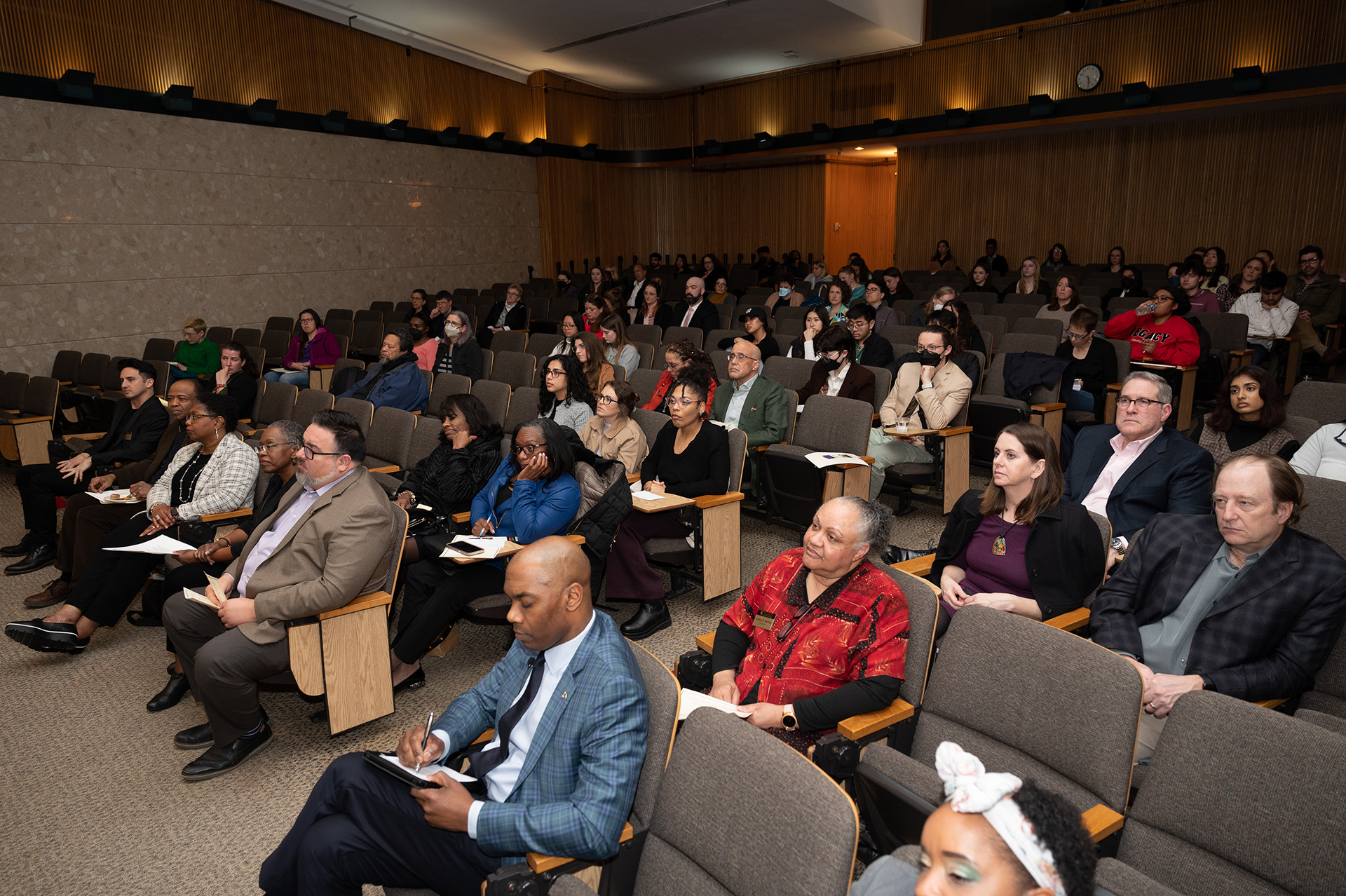The IDI Speaker Series: Ending the Legacy of Racism in Medicine is presented by the MSU Youth Equity Project and Diversity, Equity and Inclusion Graduate Certificate program in the College of Social Science.
Emilie Smith is a professor of human development and family studies, the inaugural College of Social Science Distinguished Senior Scholar and director of the MSU Youth Equity Project. Smith was a core member involved in organizing the IDI Speaker Series event.
Linda Halgunseth is an associate professor in the Department of Human Development and Family Studies. In this Q&A, Halgunseth and Smith reflect on the IDI Speaker Series event.
Dr. Smith, you played a pivotal role in organizing the second annual IDI Speaker Series event. How did the event come about?
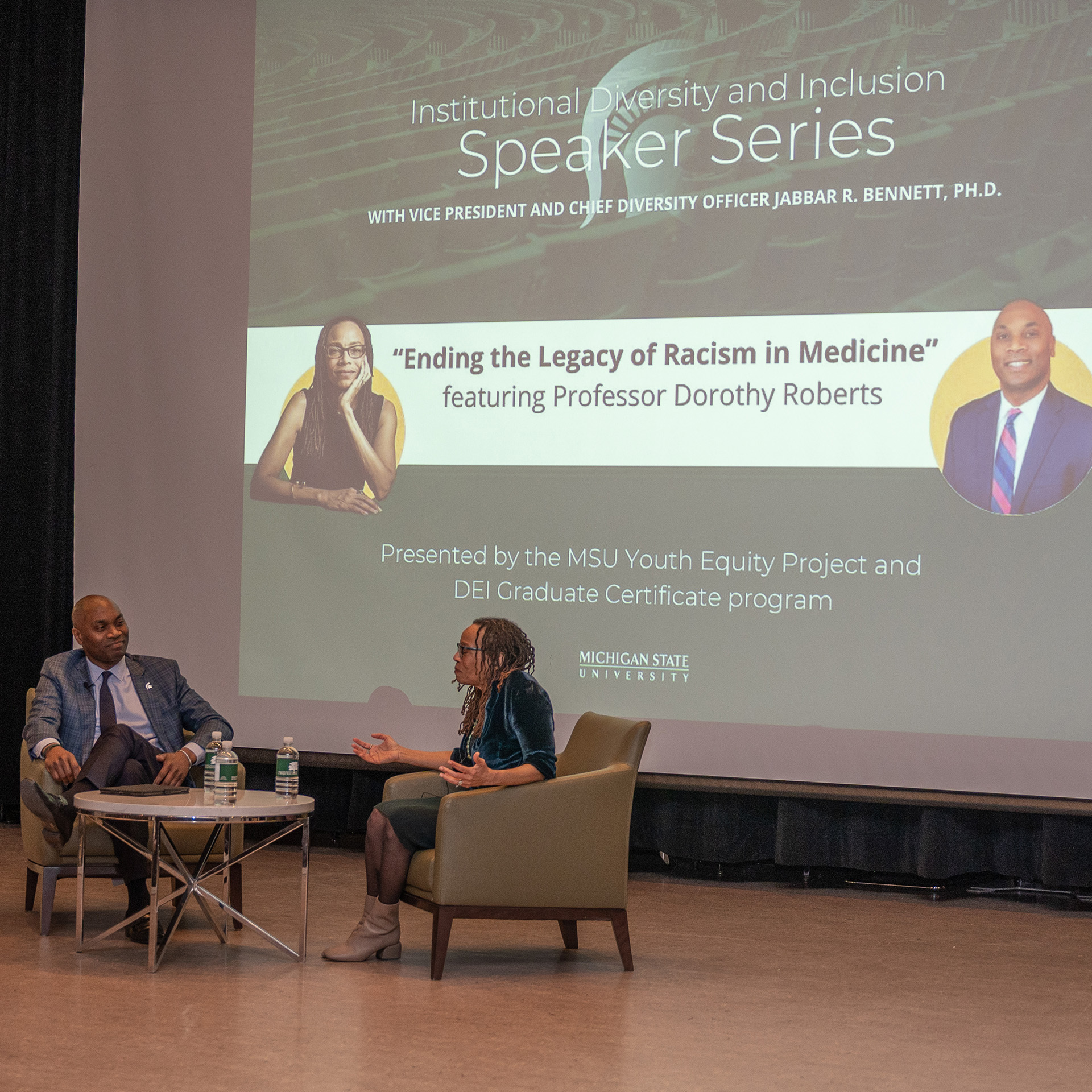
Smith: As the director of the MSU Youth Equity Project, we endeavor to bring speakers to campus to speak about issues relevant to marginalized youth, and around issues like poverty, diversity, race, gender equality, justice and social welfare. We joined with the students in the graduate certificate program and started a partnership around bringing a pivotal speaker who could talk about race, gender, ethnicity and the intersectionality of these issues. We got in contact with Vice President and Chief Diversity Officer Jabbar R. Bennet, Ph.D., and knew that he also endorsed and embraced these issues. This led us to partner with about 30 other units around the university who were really interested in supporting this issue. We are incredibly proud to be able to have partnered with the expert staff in the Office for Institutional Diversity and Inclusion and the vision of Bennett to sponsor this event.
This year’s featured speaker is Dorothy Roberts, a University of Pennsylvania professor and internationally recognized scholar and social advocate. Dr. Halgunseth, tell us about her work and influence?
Halgunseth: Dorothy Roberts is a very well-known interdisciplinary scholar. She does work in social work, the medical field, social sciences, law and health policy disparities.
She also has written several books, which she highlighted in her talk. In her book, “Killing Black Bodies,” Roberts looks at how the medical field basically performed gynecological and surgical experiments on Black women under the notion that Black women didn’t feel pain as much as other women because they had tougher, thicker skin or because they had higher pain thresholds.
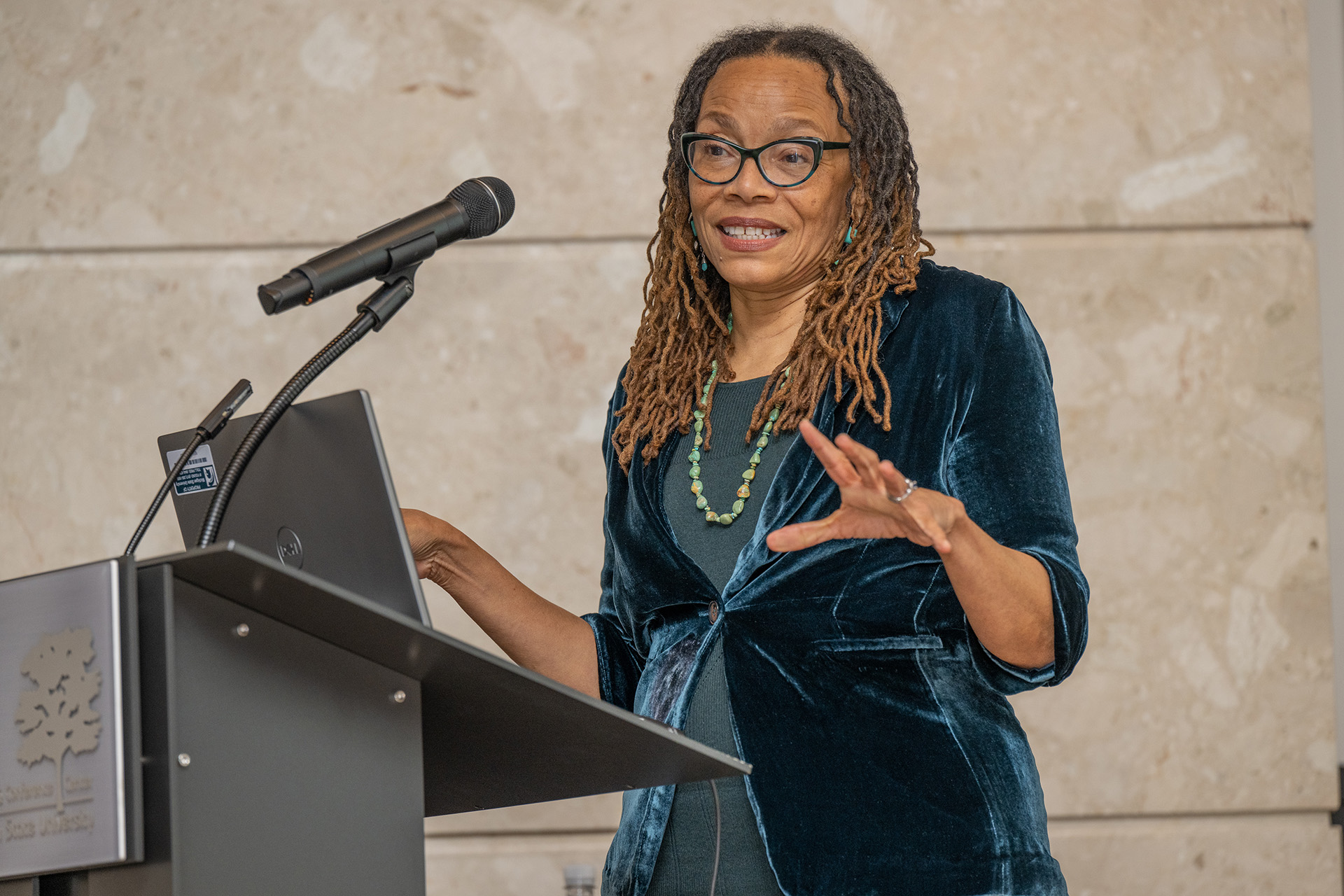
Dr. Roberts importantly uncovers how these false notions have influenced health practices toward Black people, which still exist today in the training of new medical doctors. As a social advocate, she seeks to eliminate racist practices from the medical field.
In Roberts’ most recent book, “Torn Apart,” she talks about how the social welfare system hurts and breaks apart families of color, especially Black families. Instead of building them up and strengthening them, the system weakens the families and their structure.
As I mentioned, her work is interdisciplinary. During the Q&A portion of the event, I realized I had never been at a speaker series where so many different disciplines were represented. We had attendees from medicine, social work, health policy, human development and family studies and more. I’ve never seen so many faculty across so many disciplines engaged in the same topic. It was an excellent way of creating bridges across different disciplines on a topic that we all were engaged and interested in.
How does Dr. Roberts’ work relate to efforts at MSU?
Halgunseth: I think in two ways. In one way, MSU is a very strong proponent of interdisciplinary research. Bringing different disciplines together on a topic we were very engaged and interested in but also applying it to our individual disciplines brought us all together.
It also strengthens our efforts to ensure that we are inclusive in our work and that our work isn’t influenced by stereotypes or misconceptions. We can make sure that our work is equitable by having a greater awareness of how these stereotypes influence our discipline so that we can stop and dismantle these oppressive theories as they extend beyond the medical field. In MSU’s diversity, equity and inclusion efforts, we must carefully consider how racism influences various systems across campus to ensure we are not perpetuating harm.
Dr. Smith, can you share the goal of the Youth Equity Project?
Smith: The Youth Equity Project is an interdisciplinary collaborative among faculty and students from all around the university who are interested in our mission of reducing disparities and increasing opportunities for marginalized youth. We have people in the Department of Human Development and Family Studies, the School of Social Work, School of Criminal Justice, and, very recently, our affiliates have expanded to the Residential College in the Arts and Humanities and the College of Education. We talk about marginalized youth and the kinds of issues that make them feel excluded, including issues of race, ethnicity, immigration, documentation, and being in the juvenile justice system or the child welfare system.
During the event, Dr. Roberts spoke so powerfully to how society over-polices and criminalizes some families, instead of treating drug abuse or mental health treatment issues. Over 70% of those in the juvenile justice system in Lansing are Black. These are issues that don’t have to be addressed by juvenile justice. We can address them by positive youth involvement, by more educational opportunities and by lifting families out of poverty so that they are able to afford childcare and provide sensitive and caring parenting.
That’s why I loved Dorothy Roberts’ talk. It’s the kind of talk that you can take to people who are in the field translating our research into practice. That is an important value about what we do in the Youth Equity Project — to take what we know about families in these multiple areas and translate it to practice and policy on behalf of these youth and families who have been marginalized and excluded in our society.
Dr. Smith, you are also involved with the DEI Graduate Certificate Program. Can you provide background on that effort?
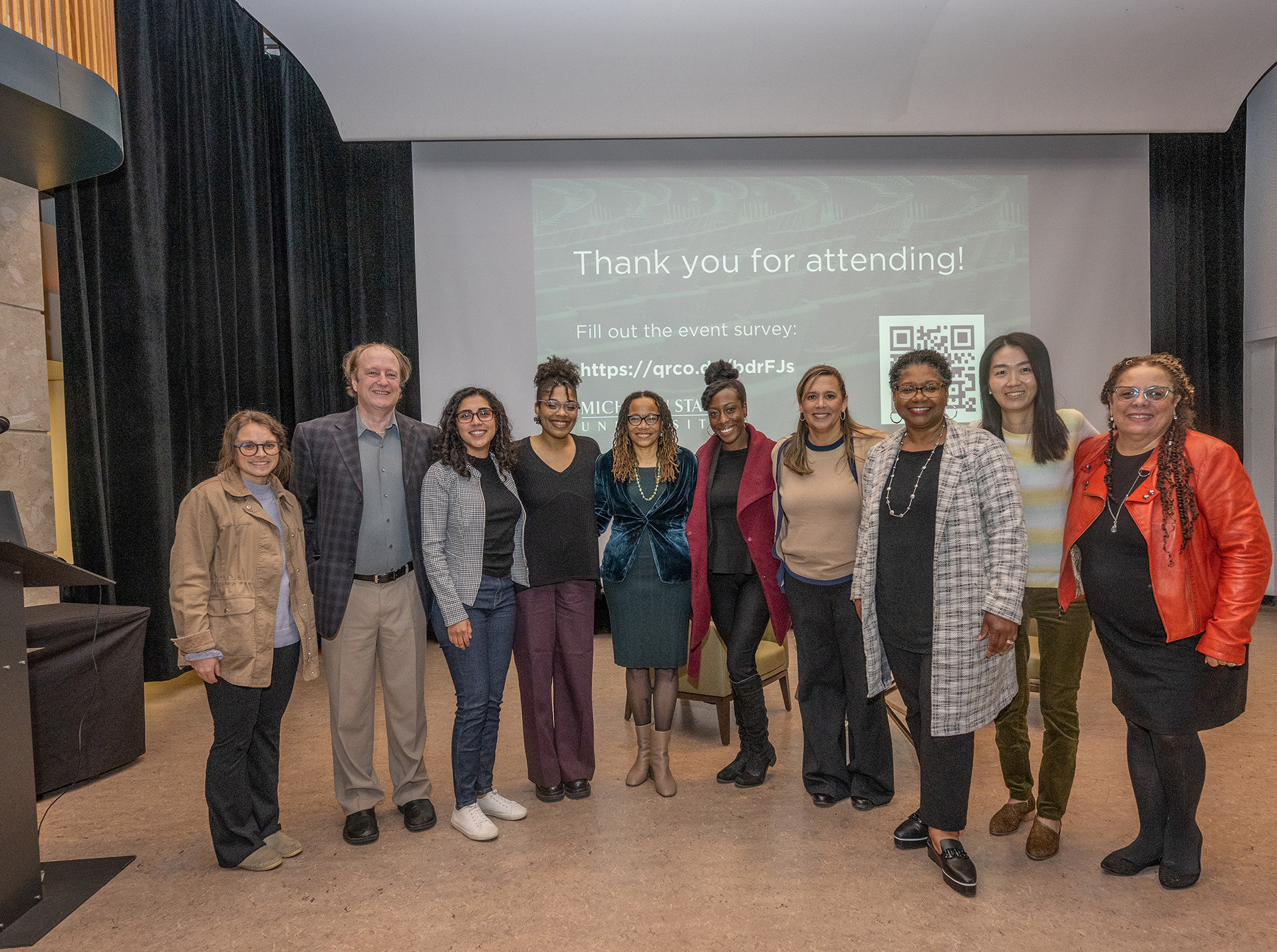
Smith: The DEI Graduate Certificate program is the brainchild of two students in Human Development and Family Studies, doctoral candidate Melissa Yzaguirre and soon-to-be doctor Gia Casaburo, who were funded by the Creating Inclusive Excellence Grant from the Office for Institutional Diversity and Inclusion to create this graduate certificate. They gathered 75 graduate and professional students from around the university — again, you can see this interdisciplinary theme, right? — to bring diversity, equity and inclusion speakers to campus to give talks about important issues like reducing health disparities. This program will serve as a model for how we continue to educate people in the medical field and child welfare field.
The graduate certificate is about training the next generation of professionals who we hope will help us dismantle systemic racism.
What do you hope participants took away from the event?
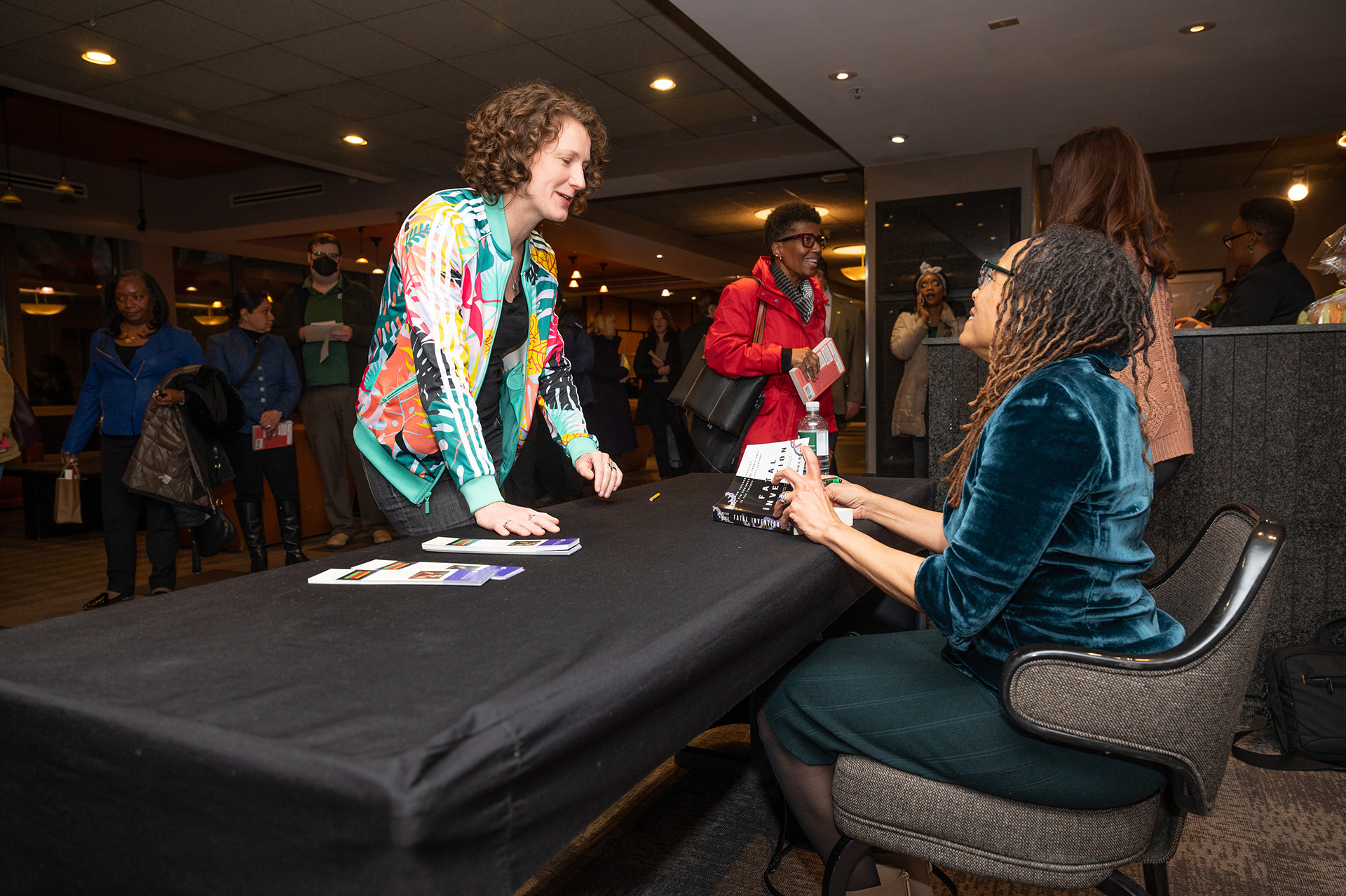
Halgunseth: Dr. Roberts really emphasized the importance of us looking critically at systems that had roots in white supremacy. We have to continue to examine those systems, update them, correct them and treat individuals of color like human beings. We can make change when we all get together and break free from working in silos. When all the disciplines are joined by this common vision and goal, we’re going to make real change.
Smith: We are using stereotypes to inform our practices, whether it’s in policing or medicine or the way we look at a family in trouble. It’s all about perspective.
I’ll tell a story. Somebody talks about watching a woman get on a bus with four kids and they’re watching the kids misbehave and conclude that that’s a single mother and she just doesn’t know how to raise her kids right. But then you get a little more perspective: that this is a woman who was married, whose husband just died and the children are now traumatized because they’re going to have to figure out how their mom’s going to get a job and how she’s going to take care of them. And knowing that information could change people’s reactions.
I hope this event changed the perspective of participants to learn more about the practices that are not serving us well, that are not leading us to serve populations with humanity and treat each other like human beings who deserve care and support.
To learn more about the Youth Equity Project visit socialscience.msu.edu
